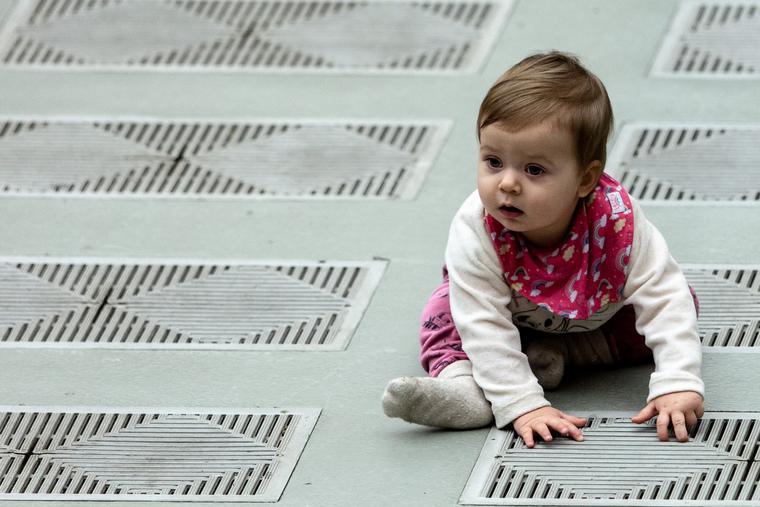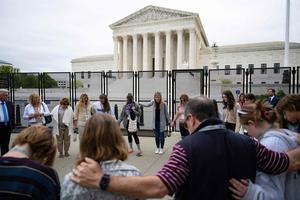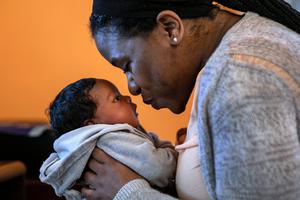California Dreaming for Pro-Life Advocates in a Post-Roe World
The Catholic Church and pro-life leaders are building a long-term blueprint for how to transform a state where legal abortion looks supreme.

Following the leaking of U.S. Supreme Court Justice Samuel Alito’s draft Dobbs decision that would overturn Roe v. Wade, California lawmakers moved to expand abortion even more than previously thought possible.
However, Catholic and pro-life leaders have doubled down on plans to make this era the high-water mark of California’s abortion supremacy by laying the groundwork for a true culture of life. And these efforts could provide a model in other states where abortion interests dominate their legislatures.
On May 11, Gov. Gavin Newsom unveiled a $125-million “reproductive-health package,” including the addition of $40 million to cover abortion for women with low or moderate incomes, which the governor said would “further solidify California’s leadership on abortion rights.”
“California will not stand idly by as extremists roll back our basic constitutional rights,” stated Newsom. “We’re going to fight like hell, making sure that all women — not just those in California — know that this state continues to recognize and protect their fundamental rights.”
The California Catholic Conference has begun its #WeWereBornReady campaign to rally Catholics behind a “new vision for post-Roe California.”
A June 9 webinar led by the California Catholic Conference aims to lay out how to mobilize the Catholic community to build a culture of life at the community level, equip Catholics to support mothers, particularly through knowledge of the state’s safety net, and how to advocate for “transformative family policies.” The #WeWereBornReady campaign has four key parts: prayer, education, advocacy and service.
“This initiative is basically inviting us to respond to our baptismal call,” Molly Sheahan, associate director for life and family advocacy at the California Catholic Conference, told the Register.
Pro-life leaders have pointed out abortion — not birth and parenting — is getting massively subsidized.
The conference is working on big-picture policy items that are aimed at supporting families and relieving the financial pressure to abort. Currently, California only covers 60% of paid parental leave — a sum that is also taxed by the federal government — but the conference is pushing for 90% so low-income workers can afford to take advantage of it when they have a baby. The Catholic Conference is also pushing for unlimited hotel vouchers for pregnant homeless women because many shelters will not take them, particularly if they already have a child.
But Sheahan said the #WeWereBornReady campaign also intends to empower Catholics with an understanding of how much their dioceses and parishes can make a difference in advocating for life. National statistics show Catholics account for 24% of all women who have abortions — the single largest religious group of women who have abortions — and for Catholics, the parish is their most concrete experience of the Catholic Church.
Sheahan said parishes can provide assistance through holding baby showers, scheduling meal trains, and scheduling moms’ groups that can help a pastor and his team identify areas where the church can help resolve crises in the lives of mothers. It can also connect them with resources in the state’s safety net or help connect them with mentor moms, such as through the Gabriel Project.
“Even in the best of circumstances, to be pregnant or parenting is hard,” Sheahan said. “The parish has a unique opportunity to come alongside and be here for these women.”
Innovative Models to Build a Life-Affirming Culture
Across the state of California, various models are being built to help provide life-affirming choices to women and families. The urgency for them is increasing as the state’s subsidy of abortion expands.
Among them are the Obria Medical Clinics, which have 18 locations — most of them in California. The clinics have a digital-outreach strategy, a form of engagement that is essential, given first-trimester chemical abortion, prescribed by pills via telemedicine, is increasingly becoming the norm in California and the U.S.
Earlier this year, a new Obria Medical Clinic opened in Fresno under the direction of CEO John Gerardi, who is also the executive director of Right to Life Central California. A local report showed the clinic is filling a crucial gap for South Fresno’s low-income households, whom medical providers are averse to serve, given Medi-Cal’s poor billing rates; Obria also works with nonprofits to help victims of domestic violence, human trafficking and poverty.
Advancing pregnancy care centers, however, represents another key to laying the foundations of a culture of life. The Sacramento Life Center provides both material assistance before and after pregnancy to mothers, but also connects them with crucial local services and medical providers and signs them up for social services.
Marie Leatherby, executive director of Sacramento Life Center, told the Register that these interventions are critical, as Planned Parenthood does not share with them the resources they would need to help empower them to make the decision to keep their unborn child.
“We see a lot of struggling families that already have children,” Leatherby said. And while some families are faced with the inability to feed another child, others come from other unstable situations.
“We try to take those pressures off of them,” Leatherby said, offering whatever assistance is needed.
Another key area of support is transportation. Leatherby said the public transportation in Sacramento runs poorly, so being able to get women to appointments through Sacramento Life Center’s lift system “can make a huge difference.”
Overall, these services amount to a couple thousand dollars of services per person, Leatherby said, which they would otherwise not be able to obtain on their own.
“We walk with them for years,” Leatherby said. “We’re there for the entire person and all her needs.”
Making Local Interventions Happen
Another key area the Catholic Church in California recognizes as essential in the campaign for life and families is putting its real estate to good use. One major crisis that coerces women into abortion is homelessness. California is home to a quarter of the U.S.’ homeless population, and Los Angeles County has nearly 70,000 people who are homeless.
“There are 5,000 homeless mothers on the streets,” Michael Donaldson, senior director of the Archdiocese of Los Angeles’ Office of Life, Justice and Peace, told the Register.
One solution the archdiocese helped with was giving an empty religious convent to Harvest Home, a nonprofit that provides shelter to women, including those who already have children. The archdiocese’s problem is that it does not have more empty convents to repurpose.
“The moment I hear there is another one, I’m going to push for it,” Donaldson said.
Donaldson said his office is doing its part to put the #WeWereBornReady campaign into action.
The challenge for Catholics in pro-life ministry today, he explained, is to be a prophetic voice against the slew of abortion-advancing initiatives, but also to deepen the means of accompaniment needed to build a life- and family-supporting culture in California.
One major example that Donaldson pointed to is FosterAll, which partners with churches and other faith communities to get their members involved in fostering a child.
Donaldson said if more Catholics get involved in fostering children who are in the foster-care system, it can remove a stigma about foster care that is often used to justify abortion as a better option.
The archdiocese did an educational campaign with parishioners last fall and signed up 70 families to “take up this culture” of fostering.
“Children need a healthy home, a stable home, to move forward in life,” he said. “This is a major way to change the conversation [around abortion].”
Donaldson also said he would like to see a “B12 shot” to parishes’ accompaniment of the “whole person” by providing pastoral training to clergy and lay ministers regarding a variety of situations. Donaldson’s office recently fielded a call from a woman who was pregnant, with cancer, and had questions she needed to ask. She tried calling her parish, but the receptionist did not help, and the pastor did not have time to take the call.
“All she wanted was a priest to speak to,” he said.
“We have a lot of challenges,” he said, “but there are so many great opportunities the Church has in hand to just change culture.”
- Keywords:
- california
- post-roe
- prolife witness
- prolife movement
- peter jesserer smith
- roe v. wade
- Dobbs v. Jackson Women’s Health Organization
- culture of life















